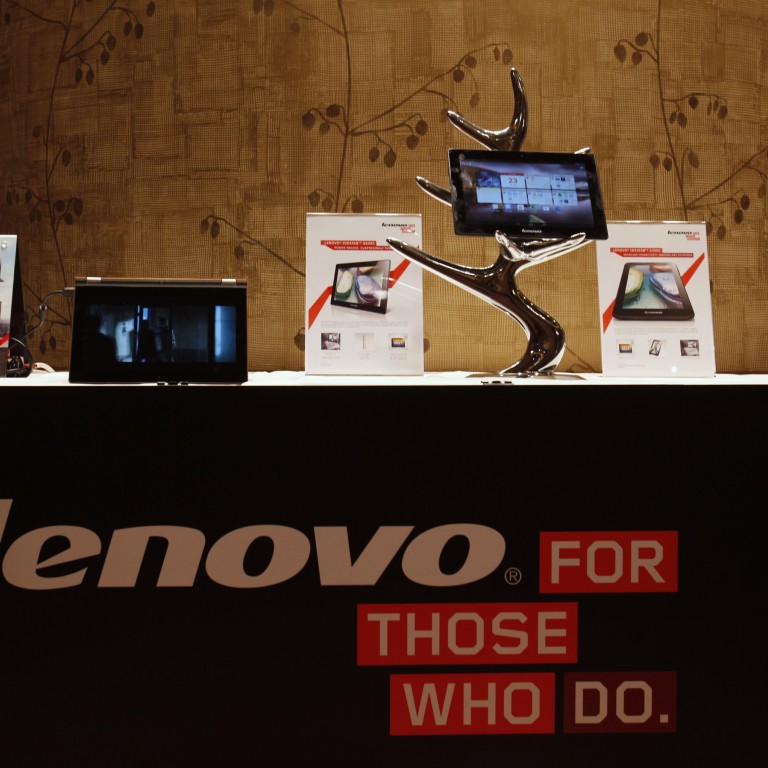Update: It seems I was right in pointing out the sourcing on this report as being flimsy, as Wandoujiang has come out and directly denied it is being acquired by Lenovo, saying it is committed to its path of independent growth. The updated story contains the company's denial.
Just days after I wrote about a new online alliance between PC giant Lenovo (
0992.HK) and leading search engine Baidu (Nasdaq: BIDU), yet another report is saying Lenovo is making a related move with its acquisition of Wandoujia, an up-and-coming app store. I'll admit that before this week I'd never even heard of Lenovo's Fancy Maker online initiative, which looks like a bid to copy similar moves by cellphone makers like Apple (Nasdaq: AAPL) and China's own Xiaomi.
Such a move looks necessary and overdue for a company like Lenovo, which has big plans for its cellphone business as growth slows for its older, core PC unit. Whether the move will succeed is another question, though the timing does seem good and the choice of the well-respected Wandoujia also seems like a smart one if the report is true.
The smartphone market is quickly evolving into two camps, with pure hardware makers on one side and a newer generation of hybrid companies providing both handsets and support services on the other. Apple pioneered the latter business model with the launch of its famous App Store alongside its popular iPhones in 2007. Chinese smartphone sensation Xiaomi has attempted to copy that model, and so has US Internet titan Google (Nasdaq: GOOG), which sells its own smartphones under the Nexus brand.
By comparison, most Chinese manufacturers like Lenovo, Huawei and ZTE (
0763.HK; Shenzhen: 000063) have preferred to focus on simply selling hardware, which is a much simpler business model. But such a business also offers far lower profit margins, and those margins are getting squeezed even more as Chinese brands and their foreign rivals embark on a non-stop series of price wars.
The cost of running app stores and providing other online support services is a far higher margin business, in part because costs are much lower. Such services also help to attract less tech-savvy customers, who like being able to easily download apps and other services from interfaces built directly into their smartphones.
All that said, let's look at the latest reports that say Lenovo has purchased Wandoujia, a 5-year-old company that came out of the Beijing-based tech incubator Innovation
Works headed by former Google China executive Lee Kai-fu. The sourcing on the latest reports is a bit weak, quoting a Lenovo executive as saying on his microblog that "there is no better investment than the acquisition of Mobile Android app store Wandoujia by the Lenovo App Store."
If the report is true, which seems relatively likely, it would mark a major step for Lenovo as it gets ready to launch its Fancy Maker online initiative this spring. Wandoujia is one of Innovation Works' most successful companies to date, and made headlines last year when it formed a partnership to bring the popular Japanese mobile messaging app called
Line to China. A year ago Wandoujia also raised a hefty $120 million (HK$930 million) in funding from a group that included Japan's Softbank. Such large fundings usually indicate a sale or IPO for a company could be coming in the next year or two.
No price was given for Lenovo's purchase, if it occurred, but I expect Wandoujia is probably now worth about $1 billion, based on previous reports. That would be a relatively hefty figure, but would complement Lenovo's other recent purchase about a year ago of the cellphone business of former industry giant Motorola. A Wandoujia deal would also come after media reported earlier this week that Baidu had also invested $100 million
in Fancy Maker. Such a move could give Baidu's own growing suite of apps and other mobile products a preferred place on Lenovo phones, and also in Wandoujia's online store.
I'm still not completely clear on what Fancy Maker will look like when it launches in April. The earlier reports indicated it would be an online store selling Lenovo products, which now include the company's own-branded PCs and cellphones, as well as Motorola cellphones. A Wandoujia acquisition would be a nice addition to such an online presence, and could help to differentiate Lenovo's smartphone and other wireless products as it seeks to carve out a space in the hotly contested space.


